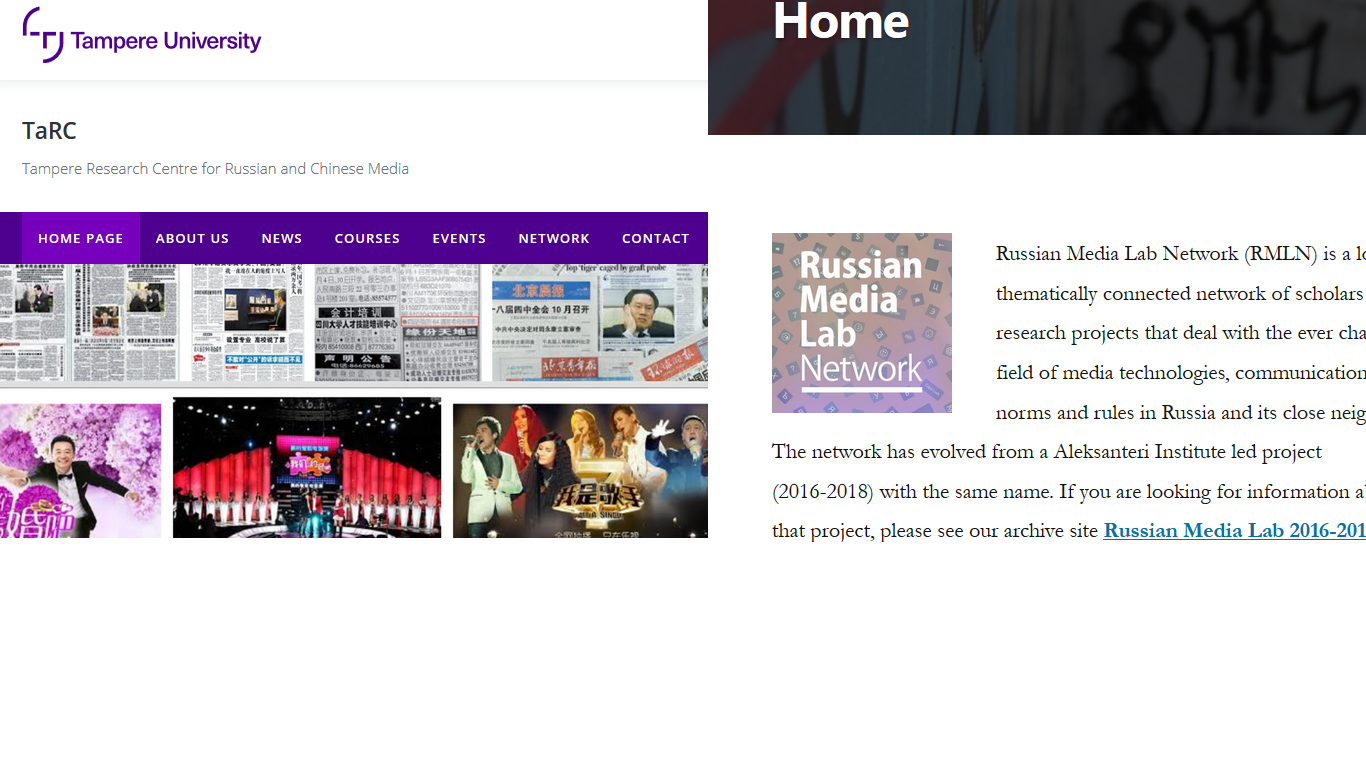On Tuesday May 11, TaRC and Russian Media Lab’s co-operation Online Talks on Russian Media focuses on media and religion in Russia.
In his presentation “Media coverage of religion as a factor of conflict: a case of Russia“, our guest speaker Victor Khroul takes a closer look at the relations between humour and religion in the media.
Humour is located in the battlefield between two basic human freedoms: freedom of expression and freedom of belief. Humour on religion in the media is not the only thing that can hurt believers’ religious feelings. Nevertheless, it is probably one of the underestimated factors in this respect and can sometimes lead to tragic consequences (Charlie Hebdo shootings, beheaded French teacher, etc.). Therefore, “humourous scandals” have their own specifics to be studied attentively.
Although the importance of humour both in and for religions is recognized, it has rather rarely been studied in the academia. Scholars from different fields have explored humour in Biblical texts (Jonson 1965; Radday and Brenner 1990), in the life of Christ and the saints (Jacques and Kervyn 1938; Leclerq 1959; Trueblood 1964), and in religions other than Christianity (Hyers 1974; Gilhus 1997).
Some interesting works have been published on the functions of humour in religion from anthropological (Apte 1985) and sociological (Davies 1998) perspectives. There are also recent theoretical attempts to valorize positive links between the comic and religion from a theological, religious, or spiritual point of view (Berger 1997; Hyers 1996; Kuschel 1994).
From one side, in-depth analysis of humour limitations in different religions promises to equip journalists and politicians with an effective tool for remapping the field and for getting a visible demarcation line – potentially conflictual if crossed. From another side, it exposes the limitations for religious dictatorship and authoritarian demands towards freedom of speech for journalists and politicians in the public sphere.
Conflicts that are based on humour discourse in media coverage of religion could be prevented or resolved according to a normative model that was developed based on an analysis of the mutual expectations of religions and journalists and mapping a maximum possible zone of consensus for the common good.
The proposed research will try to answer three main research questions:
RQ1: What kind of humour is appropriate and inappropriate in different religious communities in Russia (Orthodox, Catholic, Protestant, Islamic, Jewish)?
RQ2: What kind of humour is appropriate and inappropriate in media coverage of religion according to international journalistic standards, local journalistic culture, ethical norms and personal convictions of Russian journalists?
RQ3: To what extent are religious and media communities in Russia ready for mutual concessions in order to reach a zone of agreement based on compromise and consensus?
Answers on these questions will give the opportunity to map a ‘zone of mutual responsibility’ and then to elaborate a formal ‘pact on humour’ that could be signed by journalists and religious leaders in Russia.
Speaker bio:
Victor Khroul is a Ph.D., Dr. habil. and Professor at the School of Media in the Higher School of Economics (HSE) in Moscow, and a visiting researcher at the Aleksanteri Institute, University of Helsinki (December 2020–August 2021).
He is the former co-chair of the Religion and Communication working group in the International Association for Media & Communication Research (2012–2018).
He is the author of the monograph Media and Religion in Russia and over 90 other publications in Russian and English. He is also the founding editor of the “Media and Religion” book series (published since 2011).
His most recent publication: Khroul V. (2021) Digitalization of Religion in Russia: Adjusting Preaching to New Formats, Channels and Platforms., in: The Palgrave Handbook of Digital Russia Studies / Ed. by D. Gritsenko, M. Wijermars, M. Kopotev. Palgrave Macmillan, 2021. Ch. 11, pp. 187–204.
Event info:
Victor’s talk will be held on Zoom on Tuesday, 11 May, 12.00–13.30 Finnish time. The discussion will be moderated by Senior Lecturer Katja Lehtisaari (Tampere University).
If you wish to join this Online Talk, please sign up here.

